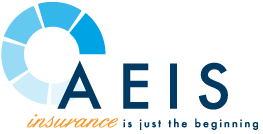What is IRS Code Section 139 and How It Could Provide Relief for Your Employees During COVID-19
IRS Code Section 139, written for 9/11 victims in 2001, may help small businesses assist employees with unforeseen costs due to COVID-19 and other recent disasters. A business can write a disaster relief program to give employees nontaxable help. The program must describe the type of expenses eligible, a maximum amount of reimbursement, and an application deadline for a specific disaster. The disaster must be an event that the IRS determines to be catastrophic in nature – COVID-19 is one such disaster. While the provisions are fairly narrow, they are designed to help a business and its employees.
Expenses that qualify in general for reimbursement include:
- Personal, family, living, or funeral expenses incurred because of the disaster.
- Expenses for the repair or rehabilitation of a personal residence (owned or rented) or replacement of its contents if the work is attributable to the disaster. This could work if you had employees affect by wildfires in a federally declared disaster area.
There are other items that can qualify for the current COVID-19 disaster, such as:
- Unreimbursed COVID-19 medical expenses
- Work from home expenses ( e.g. costs to create a home office – printer, home phone, increased utility costs on account of the home office, cost of new or expanded internet access, etc.)
- Dependent care expenses (e.g. child care, tutoring costs, remote learning or schooling expenses, etc.)
- Increased transportation expenses (e.g. increased commuting costs from lack of access to public transportation)
- Other living expenses on account of employee’s known exposure to COVID-19 (e.g. cleaning products to sanitize home)
Generally, these payments are excludible from income by the employee, but still deductible by the employer. The employer is not required to get documentation as long as the amounts are reasonable, necessary, and related to the disaster. Paying an employee’s salary does not qualify. COVID-19 provisions do allow emergency paid sick leave and expanded family leave to qualify for payroll tax credits. But those provisions sunset on Dec 31, 2020, unless an employer chooses to offer them through Q1 of 2021. There are also employee retention credits.
Employers can set up a program to help their employees pay for these costs, but they have to qualify as a disaster relief program under Code Section 139.
Contact AEIS Today
Reach out to us at AEIS, Inc. at Alyssa@AEISAdvisors.com if you would like to be connected with George Paulsen and his team of tax advisors and CPAs at Hood & Strong, LLP who can help you set up a disaster relief program for your employees.
This post was originally published in Hood & Strong’s Newsletter.
Disclaimer: Any information related to compliance or other subject matters in this blog is intended to be informational and does not constitute legal advice regarding any specific situation. The content of this blog is based on the most up-to-date information that was available on the date it was published and could be subject to change. Should you require further assistance or legal advice, please consult a licensed attorney.



